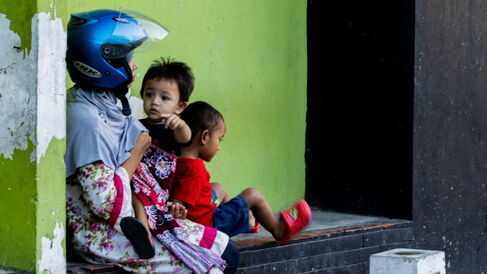
Five sites of the EBLS Foundational Study are about to begin a third wave of data collection in the coming weeks. This will include Valenzuela (Philippines), Hue (Vietnam), Cluj-Napoca (Romania), Koforidua (Ghana) and Kingston (Jamaica). This collaborative effort will be mostly conducted via telephone-based interviews when the child is around the age of 18 months. This new wave pursues the following research goals:
To contribute to the better understanding of the link between the mothers’ exposure to adversity during childhood and pregnancy, and their children's development in the second year of life. The comparative design of the study across five low- and middle-income countries (LMICs) will contribute to creating the foundations of better prevention policy relating to mental health and early child development in LMICs.
To advance our understanding of the effects that COVID-related restriction measures had on mothers and their small children in low- and middle-income countries. The children of almost all study participants of the EBLS Foundational Study will have spent most of their lives under exceptional conditions since the outbreak of the pandemic. Emerging evidence already suggests that the stress, fears and constraints linked to COVID-19 exacerbate health inequalities of families. Vulnerable families may experience more conflict and violence, and be less able to support their young children. We will also aim to examine how variation between families and across the study sites in the economic, social and emotional strains of the pandemic can cause poor maternal and child well-being. These findings will be linked to relevant prevention policy recommendations.
You can find out more about the EBLS Study - its stages, research questions, objectives, policy impact and capacity-building activities here.
